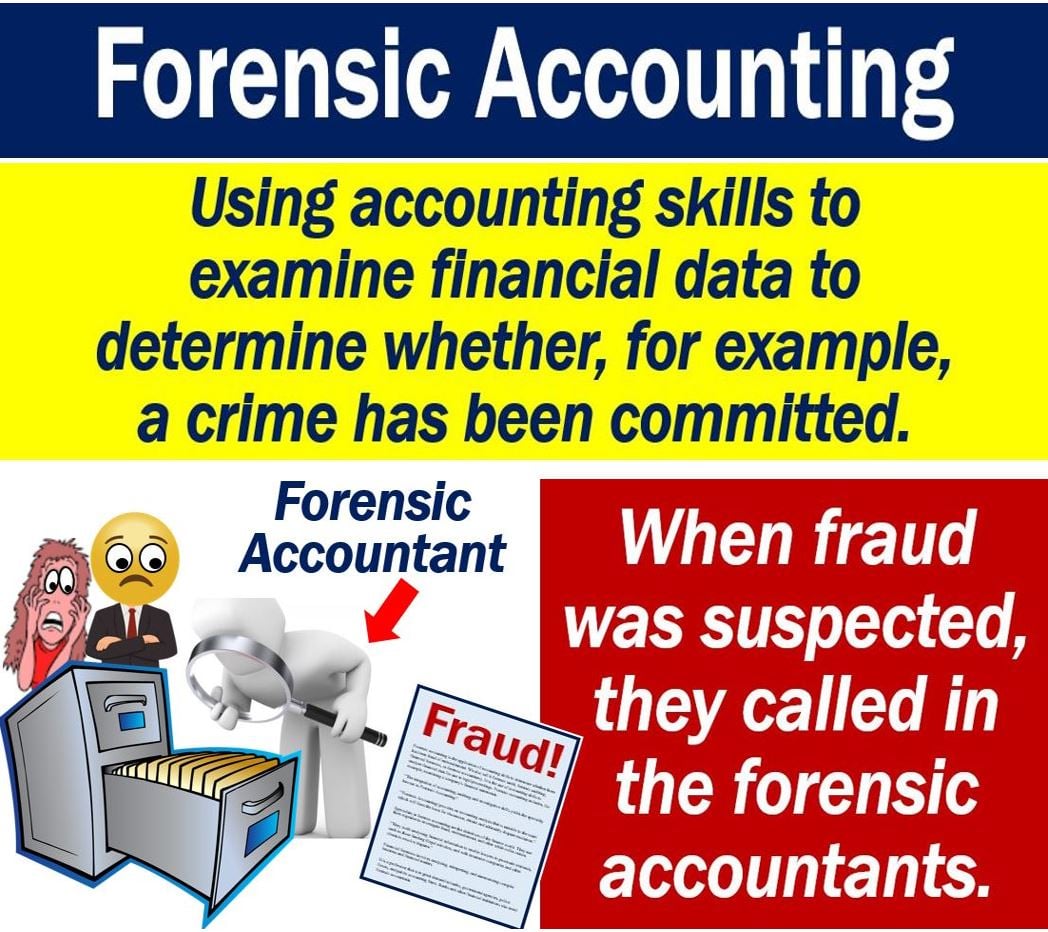Forensic accounting is the application of accounting skills to determine whether there has been fraud or embezzlement. We also call it forensic audit, forensic auditing, financial forensics, or forensic accountancy. It is the use of accounting skills to analyze financial data for use in legal proceedings. Forensic accounting includes, for example, examining a company’s financial statements.
The term ‘forensic‘ refers to the application of professional, technical, or scientific knowledge for criminal investigations. It also includes the application of such knowledge for legal proceedings.
There are dozens of different forensic specializations. For example, much of forensic medicine is about trying to determine how and when a corpse died. Forensic engineers, on the other hand, try to find out what went wrong with a structure or machine.
All the different forensics are subdivisions of forensic science.
ForensicAccounting.com has the following definition of the term:
“The integration of accounting, auditing and investigative skills yields the speciality known as Forensic Accounting.”
“‘Forensic Accounting’ provides an accounting analysis that is suitable to the court which will form the basis for discussion, debate and ultimately dispute resolution.”

Forensic accounting specialists
Specialists in forensic accounting are the detectives of the finance world. They use their expertise to investigate fraud, embezzlement, and other white collar crimes.
White collar refers to office work as opposed to manual work or blue collar work. Therefore, white-collar crimes are crimes that occur in an office.
ICAEW, a careers website for accountants, says the following regarding forensic accountants:
“They work analyzing financial information to enable lawyers to prosecute criminals, such as those funding illegal activities, and with insurance companies and other clients to resolve disputes.”
“Forensic accountants are trained to look beyond the numbers and deal with the business realities of situations.”
Forensic accounting features
Financial forensics involves analyzing, interpreting, and summarizing complex business and financial matters.
It is a profession that is in great demand in government agencies, police forces, and public accounting firms. Banks and other financial institutions also need forensic accountants.
Experts gather data and create computer applications to manage the data that they collected. They subsequently present their findings either in writing, through face-to-face visual presentations, or both.
Testify in court
Experts in financial forensics sometimes have to testify in court. The court may ask them to present their evidence or findings using visual aids.
In other words, they have to convey their evidence using language that non-experts, i.e., lay people, understand.
Forensic accounting covers tax fraud, business valuations, securities fraud, and economic damages calculations.
It also covers bankruptcies, insolvencies, reorganizations, money laundering, and post-acquisition disputes.
Forensic accountants may also work in marital and family law. They may have to analyze the lifestyles of people to determine levels of spousal or child support.
